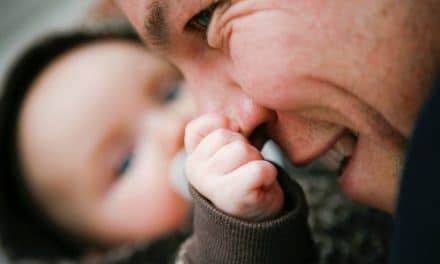If you have endometriosis and are thinking about becoming a mother in the short or long term, you have probably asked yourself this question. The good news is that fertility treatment is not always necessary. However, at least 30% of women with endometriosis have trouble getting pregnant. It is also known that a third of women with fertility problems have some form of endometriosis, which means this condition can make it more difficult to conceive.
But, although there are some highly complex cases, having endometriosis does not necessarily mean that you will have a worse result if you undergo a fertility treatment. (In this post we answer some frequently asked questions on this subject.) In fact, resorting to assisted reproductive techniques is quite common, and the results often depend more on your age than on whether you have endometriosis, as well as on your specific case. So, the best thing to do is to ask fertility experts for an assessment.
At our medical centre, we have a dedicated Endometriosis Unit and a Reproductive Medicine Department that work together on these cases, which is highly beneficial for patients. In addition, we have been treating women with endometriosis who wish to become mothers for many years, advising them and supporting them through the different stages in which this disease can have an impact.
Is it usually more difficult to conceive naturally with endometriosis?
Yes, it is, as this condition causes multiple alterations that can have a negative influence on fertility, such as tubal dysfunction, the presence of intrauterine adhesions and fibrosis or high inflammation of the female genital tract. However, most women with endometriosis manage to become pregnant naturally. Unfortunately, there are no tests that can tell in advance which patients will have infertility problems.
In which cases is fertility treatment recommended?
Usually, we recommend undergoing fertility treatment if you are under 35 years old and have been trying to conceive for more than a year without success, or if you are over 35 and have not been able to get pregnant within 6 months. If you experience pain (dysmenorrhoea) or very heavy bleeding (hypermenorrhoea) during your period, if you have been diagnosed with a tubal condition (such as a hydrosalpinx) or if you have other risk factors, such as low ovarian reserve, it is also advisable not to delay fertility treatment.
Can previous surgery affect the course of the pregnancy?
In general, surgery is only considered in patients whose pain cannot be adequately controlled with medication, or when the disease significantly affects internal organs such as the bowel or ureter.
Can the use of assisted reproductive techniques increase lesions or worsen the condition?
No, not at all. There are multiple studies that show that there is no increase in symptoms after stimulation and no worsening of lesions. Ovarian stimulation treatment does not increase the risk of endometriosis either.
What prior studies or tests may be necessary before starting fertility treatment?
Patients and their partners, if they have one, must carry out a comprehensive fertility assessment in order to provide individualised information. In addition to a basic fertility assessment, more specific tests are required to determine the extent and scope of the lesions caused by endometriosis.
If I have a low ovarian reserve, do I have to resort to egg donation?
It depends on the quality of your eggs, which is closely linked to your age. Having a low ovarian reserve does not mean that you cannot use your own eggs. It does mean, however, that you have fewer eggs, and you are likely to need more stimulation treatments to achieve your goal.
What is the success rate of IVF in patients with endometriosis?
It is highly variable. It basically depends on the age of the eggs. In addition, other factors such as ovarian reserve, the extent of the disease, or the quality of the sperm may also play a role. However, studies show that the chances of a successful IVF treatment in patients with and without endometriosis are very similar. In general, contrary to what one might think, endometriosis per se does not reduce ovarian reserve. However, if a patient has undergone previous ovarian surgery for endometriosis, her ovarian reserve may be affected (e.g., if a patient has had ovarian endometriosis cysts removed).
Can embryo implantation be more difficult with endometriosis?
There may be other conditions in the uterus that can hinder implantation, such as myomas, endometrial polyps or the presence of adenomyosis. However, in egg donation treatments or when using embryos that have undergone pre-implantation genetic testing (PGT), the implantation rates are no different from those of other patients.
If you would like more information on this subject or if you think you may have endometriosis and wish to become pregnant, we are at your service to help you achieve your dream.















